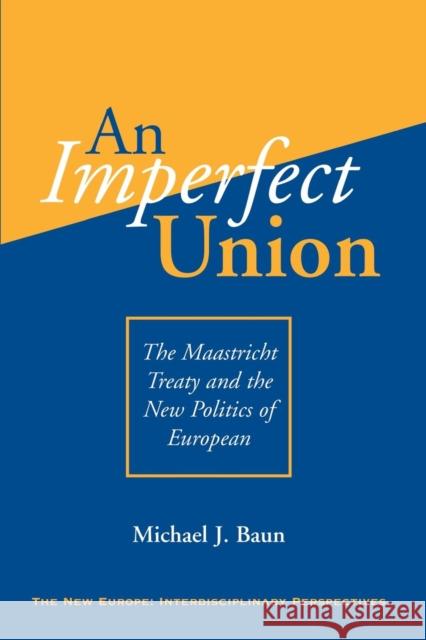An Imperfect Union : The Maastricht Treaty And The New Politics Of European Integration » książka
An Imperfect Union : The Maastricht Treaty And The New Politics Of European Integration
ISBN-13: 9780813327112 / Angielski / Miękka / 1996 / 200 str.
An Imperfect Union : The Maastricht Treaty And The New Politics Of European Integration
ISBN-13: 9780813327112 / Angielski / Miękka / 1996 / 200 str.
(netto: 139,03 VAT: 5%)
Najniższa cena z 30 dni: 105,05
ok. 16-18 dni roboczych.
Darmowa dostawa!
Exploring the politics of European integration, Michael Baun argues that the end of the Cold War and German unification have created a new set of geopolitical realities in Europe that have profoundly affected the nature and dynamics of European union. His primary focus is the high politics of European integration after 1989, especially the role of the Franco-German relationship in the Maastricht Treaty process.Acknowledging the important roots of the treaty in economic and institutional developments prior to 1989, Baun argues that Maastricht principally can be understood as a response by the EU and its member states to German unification and the end of the cold war. In making this argument, he departs from more conventional neofunctionalist or institutionalist interpretations of European integration.After providing the historical background of developments before 1989, Baun weighs the decision to launch parallel intergovernmental conferences on monetary and political union in 1990 and describes in detail the negotiations and treaty outcomes in each of these areas. He then examines the difficult ratification of the Maastricht treaty in 19921993, in the face of growing popular opposition and economic and monetary instability. The book concludes with an analysis of the future prospects for European union in the post-Maastricht era, as the EU approaches its next major intergovernmental conference in 1996."











